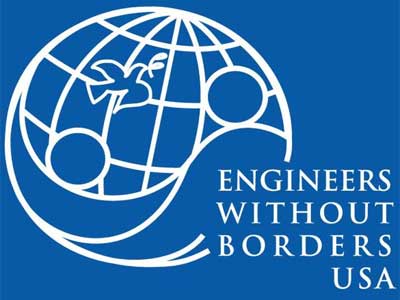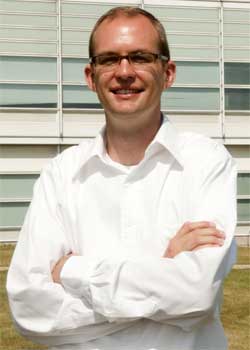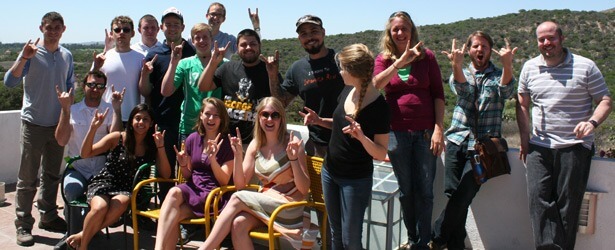 NIU’s Engineers Without Borders (EWB) returns to Mexico again this month to continue its five-year sustainability improvement contract for CATIS-Mexico.
NIU’s Engineers Without Borders (EWB) returns to Mexico again this month to continue its five-year sustainability improvement contract for CATIS-Mexico.
For the first time, these engineers will be joined by students and advisers from multiple disciplines across NIU’s campus.
With the support and guidance of iCatis (International Centers for Appropriate Technology and Indigenous Sustainability), EWB students engineered water filtration systems for communities of Guanajuato, Mexico. CATIS-Mexico is made up of community leaders in direct partnership with NIU.
Project leader and mechanical engineering major Taylor Dupre serves as a student facilitator for the trip. He will assist in the continued research and development of water filtration systems implemented on previous trips.
“This project is the epitome of multidisciplinary research and development. We have students striving to become professionals in geology, engineering, chemistry, social entrepreneurship and business,” Dupre said. “We will be working with professionals and faculty in those fields on a community driven development project with the potential of provoking real-world change.”
Past trips have focused on developing ceramic water filtration systems to remove arsenic and fluoride within the communities’ of Guanajuato’s drinking water. This trip will serve as gateway into field testing and implementing other sustainability efforts within these villages.
Nicholas Pohlman, an assistant professor in the Department of Mechanical Engineering of the College of Engineering and Engineering Technology, is a faculty adviser for the travel trip. Pohlman commented on the importance of student involvement in sustainability efforts similar to the CATIS-Mexico travel trip.
“Too often, designs address the short-term problem rather than the long-term sustainability,” Pohlman said. “When design projects consider the scope of the lifetime of the products existence, then they have a great appreciation of the global impact engineering has on the world’s future.”
CATIS-Mexico sustainability efforts are funded by Omron Lab. Omron helps provide clean water not only to these villages in Mexico, but others around the world.
Omar Ghrayeb, associate dean of Outreach and Undergraduate Programs for CEET, recognizes the college’s partnership with Omron as a great benefactor to the CATIS-Mexico travel trip.
“Any time we can bring together the expertise and vision of representatives from multiple disciplines, and pair them with the funding our dynamic partner, Omron, provides, we gain the opportunity to truly develop the next generation of leaders,” Ghrayeb said.
Omron donated safety and automation equipment to help further the education of students in CEET’s technology program. “These students will understand the ramifications and subtleties of poverty on a global scale.” Ghrayeb said.
Melissa Lenczewski, associate professor of geomicrobiology, organic geochemistry and contaminant hydrogeology and adviser and director of the Institute for the Study of the Environment, Sustainability and Energy, is an adviser for the travel trip. Lenczewski’s position has included the coordination of travel preparations for CATIS-Mexico.
“My job is to facilitate the collaborative efforts of individuals within the fields of engineering, science, business and humanities, in order to solve universal problems,” Lenczewski said. “Once we get these diverse students and faculty members to work together on common problems, we begin to develop new solutions.”
NIU’s social entrepreneurship student organization, the Collegiate Association of Unreasonable Social Entrepreneurs (CAUSE), will send six students to Mexico. CAUSE aims to spread awareness about the positive impact social entrepreneurship has on the world.
“These trips allow us to run field tests on equipment and techniques we have been developing at NIU,” Dupre said. “This year’s group is three times bigger than last year’s. These individuals offer such a wide variety of essential skills and experience. I am excited to be a part of it.”
The partnership formed by the various student groups and faculty at NIU and the team at CATIS-Mexico provides an unparalleled opportunity for students to play a key role in truly helping people.
“I want these students to have more of an appreciation of different cultures, poverty and living conditions. These students will receive the opportunity to see life from a very different perspective and develop a different cultural sense,” Lenczewski said. “It is not just about water filtration within one area; it is about different projects that we can develop in order to better whole communities around the world.”
Organizations or individuals interested in joining the efforts of sustainability and CATIS-Mexico can contact Lenczewski at water@niu.edu.


